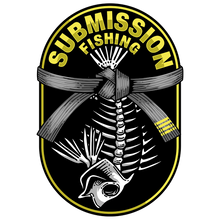5 Reasons Why Slow Pitch Jigging Doesn't Work for You
If you’re a dedicated angler diving into slow pitch jigging and feeling more frustration than satisfaction, you might be missing a key element. Slow pitch isn’t a passive style—it’s an active, skill-driven technique that lets you create your own bite. Here are 5 reasons why slow pitch jigging might not be working for you—yet. If any of these sound familiar, don’t worry! Send us your questions, and we’ll help you fine-tune your approach to land that perfect catch.
1. You Don't Have the Patience Required: Slow pitch jigging is perfect for anglers who love to be in control of every aspect of the catch. You’re not rushing the process—you’re letting your jig work its magic in a way that takes time and precision. It’s for those who appreciate that the best bites aren’t instant, but earned with skill and patience. As you let the jig flutter down, you’re not waiting for luck—you’re crafting the perfect bite. The thrill of success comes from knowing you’ve put in the effort.
2. Your Technique isn't Dialed in - YET: If you love feeling connected to every movement, slow pitch jigging is all about finesse. You’re not just casting and waiting—you’re actively creating action that mimics a wounded fish. This technique is driven by rhythm and timing, rewarding anglers who take pride in refining their skills. Every successful hook-up is a testament to your ability to master the subtle art of jigging. The feeling of accomplishment comes from knowing it’s your technique that got the fish to bite.
3. You Haven't Invested in the Right Gear: Slow pitch jigging is a technique for those who know that the right gear makes all the difference. It’s not about using just any rod and reel—it’s about investing in equipment that lets you control every aspect of the jig’s movement. For the fisherman who takes pride in knowing their gear, this method is a perfect match. When you land that big catch, you’ll know it was a combination of your skill and top-quality gear working together. It’s a technique that rewards the angler who wants to optimize every tool they use.
4. Like Any Skill, There is a Learning Curve: For those who thrive on mastering new techniques, slow pitch jigging offers a rewarding challenge. It’s not an easy, instant-gratification method—it takes practice to perfect the rhythm and timing. But with every session, you get better, and soon, you’ll find yourself hooking fish consistently through your own refined skill. The joy of landing a fish isn’t just about luck—it’s the culmination of the time you’ve spent perfecting the technique. Slow pitch jigging rewards dedication and perseverance, giving you a deep sense of accomplishment.
5. It's a Full Body Workout: Slow pitch jigging isn’t for the passive fisherman—it’s an active, full-body technique that keeps you engaged from start to finish. You’re constantly working the rod, feeling the jig’s movement, and staying connected to the water. Yes, it can be physically demanding, but that’s part of what makes it so rewarding. Each catch feels like a victory you’ve earned through hard work and effort. If you love feeling that connection between your skill and the fish you land, slow pitch jigging will keep you coming back for more.





